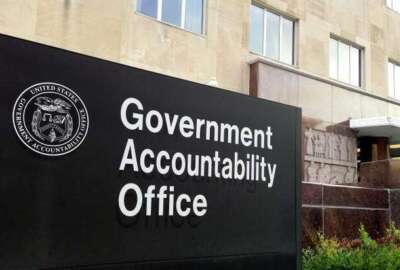The ballet known as post award debriefings gets a new tu-tu
After a lot of cogitation, the Defense Department last month finalized revised rules for contract award debriefings, informational sessions where losing contractors...
Best listening experience is on Chrome, Firefox or Safari. Subscribe to Federal Drive’s daily audio interviews on Apple Podcasts or PodcastOne.
After a lot of cogitation, the Defense Department last month finalized revised rules for contract award debriefings, informational sessions where losing contractors can, in theory, find out why they lost. Joining the Federal Drive with Tom Temin with the significant changes, Jenner and Block attorney Carla Weiss.
Interview transcript:
Tom Temin: Ms. Weiss, good to have you on.
Carla Weiss: Thanks so much. It’s good to be here, Tom.
Tom Temin: Let’s start with what you feel are the most significant changes for contractors that want debriefings? And is this a case of be careful what you ask for?
Carla Weiss: Sure. So I think primarily the largest change here is going to relate to timeliness. So as you know, under the enhanced debriefings, offerors are given an opportunity to ask questions, whereas in the standard debriefing, that’s not a guarantee. So under the proposed rule, a debriefing would not be considered closed until after the second business day after delivering the debriefing, if no additional questions were received. So in other words, the offerors’ enhanced timeline automatically was extended for two days. And it did not matter whether that offeror actually submitted additional questions or not. So this has changed under the final rule. So here now, the provision requires that the debriefing closes either at the time it’s actually given to the contractor to the offeror, or based on the date of the agency’s response to the offerors’ additional questions if they were timely submitted. So the debriefing is only extended if the offeror submits follow up questions. There’s no magic two day extension that’s just automatically granted to every participant in the enhanced debriefing.
Tom Temin: So that means you have to submit your questions at the end of the debriefing itself before they turn the lights off and close the door?
Carla Weiss: So you have to do one of two things. Either you get your debriefing, and you say, OK, good, it’s closed. And now if I’m going to protest my five day clock ends at this time, or you have two days under the regulation to submit your questions. And then the agency is supposed to reply in five days. So effectively, you have the two day window at the outset. And then however long it takes for the agency to provide answers. But if you are considering in that two day window, whether or not you want to submit questions, and you ultimately don’t, you have eaten up two of three days of any potential protest window for getting a stay of contract performance. Of course, GAO continues with its 10 day normal jurisdiction, but you won’t get the contract stay.
Tom Temin: And do questions, they need to be submitted by email or by fax? I mean, this is the government I would expect they would still take faxes, or how does it has to come in? Can you leave a phone message?
Carla Weiss: So they’re required generally to be written, but email is acceptable generally, in my experience, debriefings come via email, even if there’s an in-person debriefing, or a telephonic debriefing, there’s still email correspondence about that. And you can submit them and there’s no required format. I’ve seen clients submit Excel files with questions. I’ve seen Word documents. It’s not a prescribed format or template, it depends on preference for the company and how they like to do things.
Tom Temin: We’re speaking with attorney Carla Weiss, she’s special counsel at the law firm Jenner and Block. Is there anything in the new revised rules that’s called enhanced debriefings that enhance the content of the debriefing itself, though?
Carla Weiss: So as part of this, yes, with procurements that are either over $100 million, or for small businesses, the government is required to submit a redacted version of their source selection decision. So again, everyone wants to protect the proprietary and confidential information of offerors. But within that source selection decision, you often get a lot more information about the trade offs that were made, the depth of analysis that was performed, even if you see giant blocks of redactions, you know, something’s behind there as opposed to one or two sentences of what looks like to be redactions and that depth of trade off, that depth of analysis can really inform whether or not the agency is doing what it’s supposed to do as part of its obligations to conduct meaningful competitions.
Tom Temin: Because the government is I believe, or at least suspected to be naturally worried that the more information they give out, the more subject to protests they’ll be because somewhere along the line they offeror will find something they can hang a protest on, after a debriefing. Does this mitigate that feeling on the part of the government I mean, potentially to they leave themselves less open or more open to protests?
Carla Weiss: So this is a common theme you hear and I think ultimately, in my experience, a company that wants to protest is probably going to protest. Whether they’re protesting because they have no information and so they’re going to allege no trade off analysis was performed, or whether they have incredibly fulsome information and they have more specific information. But ultimately, you can generally find something to protest and something to get the best value trade off document. And so I do think there’s a lot of companies out there who just want to know what happened. They want to both understand why their proposal that they spent a lot of time and effort putting together wasn’t selected, what they can do better, what the government was really looking for. And so part of it is just informational. Now, as they find something that they think reflects an error in the evaluation, that’s why we have a protest process. And it’s not a dirty word. Protests are sustained, corrective action occurs because sometimes decisions aren’t defensible. And we don’t want frivolous protests. But I don’t think a protest is something to be scared of. It’s one of the great things about our procurement system. And it keeps everyone in check.
Tom Temin: And if you would just one more time review for us the thresholds of procurement size, as you mentioned, $100 million at which someone is entitled to a debriefing?
Carla Weiss: Sure, so as part of this process, DoD agencies have to give a redacted version of the source selection decision where the offeror is a small business or non-traditional defense contractor, the award is above $10 million, and a copy of the selection decision is requested. So that’s one bucket. The second is for all offerors where the award is greater than 100 million. And we often ask, even if it’s under 100 million, it’s not required. But sometimes agencies in a transparency mode will say, sure, we’ll give you a copy of a redacted source selection decision, because they think they’ve done it right. They think it’s fulsome, it’s meaningful, and they’re willing to be open about it.
Tom Temin: So in other words, it never hurts to ask.
Carla Weiss: Never hurts to ask.
Tom Temin: And looking at the final rules, then, is debriefing really enhanced all that much in your view?
Carla Weiss: I think so. I think from a situation where the agency gives you possibly a written debriefing, and that’s it, there’s no opportunity to ask questions. There’s no possibility of getting a redacted source selection decision. I think it is a meaningful change to be able to ask follow up questions and to know that the agency is required to answer them, and to have awareness of what your protest timeline is. Because I think that’s one of the hardest things related to asking questions in the normal debriefing regime, because you can ask them, sometimes the agency will answer them, but it is always uncertain what the timeliness and timeline is, if you are intending to protest and whether or not a debriefing has been closed. And as we all know, GAO is a stickler for timeliness. And so if you are coming in and you have a closed debriefing, and you are either past your five days for the stay, or past 10 days for just general GAO jurisdiction, the hammer comes down. And so this is something where that bit of clarity really benefits offerors.
Tom Temin: Attorney Carla Weiss is special counsel at the law firm Jenner and Block. Thanks so much for joining me.
Carla Weiss: Thank you so much for having me.
Copyright © 2025 Federal News Network. All rights reserved. This website is not intended for users located within the European Economic Area.
Tom Temin is host of the Federal Drive and has been providing insight on federal technology and management issues for more than 30 years.
Follow @tteminWFED






